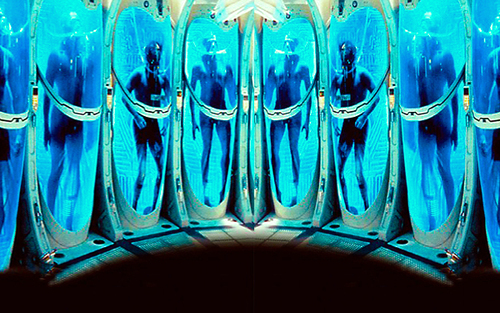Surprisingly good news: “Half of respondents in Germany are familiar with the process of cryonics and more than one fifth can imagine having their own bodies cryonized— an amount which is significantly higher than previous publications on the subject would have led us to expect.”
However: “There is still a legal obligation to bury or cremate bodies in Germany, a circumstance that prohibits the storage of bodies and therefore prevents cryonics from being introduced into Germany.”









8 Responses to “1 in 5 Germans Can Imagine Doing Cryonics”
February 20
Daria Khaltourinaand this is pobably the only country where cryonics is sort of banned
February 21
TaurusIn France yes, but in Germany? Where have you heard this?
February 21
Louie HelmI agree I’ve heard this about France too.
My source on Germany was the survey itself. The excerpt above is a direct quote from the research paper’s conclusion. I guess I assumed the german researchers are accurately reporting the current state of german law.
Do you have any reason to think they are wrong?
February 22
TaurusIf I’m not mistaken, the transhumanist Eugen Leitl and a group of young cryonicists purchased lab space in Germany a year or two ago, and have since been working to develop a nascent cryonics organization (everything from chemicals and equipment to logistics and infrastructure). Eugen is one of a handful of people in the cryonics culture with the background and intelligence to be worth taking very seriously.
February 25
RedneckCryonicistAlong with Jordan Sparks:
http://www.oregoncryo.com/
I notice a weird disconnection in the cryonics culture where cryonicists talk about how much faith they have in the march of progress, yet most of them seem to accept the relative lack of progress, if not stagnation, in the cryonics technology itself. Solvable problems in cryonics have gone unsolved for decades from neglect, even though some of the wealthiest men in the country have cryonics arrangements and they could turn this around by finding the right men to work on them and writing them a check.
A cryonics movement that finally grows up and deals with reality will have to reframe the cryonics idea as one of applied neuroscience centered on scientifically defensible brain preservation. I worry that as long as cryonics organizations neglect clinical rationality, freeze people any which way they want, and invoke pseudotechnology like Eric Drexler’s fantasies, that will eventually result in adverse legislation against the cryonics industry for selling a fraudulent product/service.
February 20
Chris HallquistAsking the question in terms of “can imagine” would seem to bias it in a heavily pro-cryonics way.
February 20
Louie HelmThe “can imagine” wording normally draws under 5% support in US surveys. But many are older.
February 20
Chris HallquistIn the US, the % of people signed up for cryonics isn’t just under 5%, it much, much less than 5%. So this survey makes me think that maybe, if cryonics were legal in Germany, the rate of sign up would be several times the US rate but still very small.
OTOH, the effect might not be linear – when only 5% say they can imagine doing it, hardly anyone does because it seems to weird, but as that percentage goes up,the rate of sign up jumps because now it seems less weird.